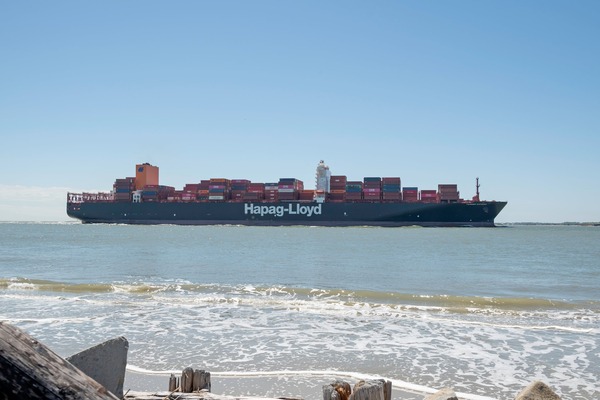USCB Receives $1 million NSF Regional Innovation Engines Development Award
These first-ever awards will help regional partners including the University of South Carolina Beaufort collaborate to create economic, societal and technological opportunities for their communities.
 USCB’s new NSF Regional Innovation Engine Development Award will focus on the maritime
cybersecurity ecosystem tied to the Port of Charleston.
USCB’s new NSF Regional Innovation Engine Development Award will focus on the maritime
cybersecurity ecosystem tied to the Port of Charleston. USCB is among more than 40 teams across the U.S. to receive one of the first-ever NSF Engines Development Awards, which will help partners collaborate to create economic, societal and technological opportunities for their regions.
USCB, together with 12 partners, will use the grant funds to plan for the South Coast Regional Innovation Engine, which will conduct research to understand vulnerabilities, interdependencies, and risks in the regional maritime ecosystem and develop technologies to enhance safety and security. Enhanced cybersecurity education and workforce development programs, experimentation, investment, and commercialization of products with regional and national impacts are the ultimate goals.
“The real strength of the proposal is in its partnerships spanning industry, higher education, and government agencies. The transformational power and scope of the NSF Engines grant is immense,” said USCB’s Chancellor Al M. Panu.
Collectively, South Carolina’s port and maritime transportation system represents 10% of the state’s economy and includes ports, ships, shipping lines, cargo, people, inland waterways, intermodal transfers and other elements.
The NSF Regional Innovation Engines program is a new initiative and USCB is the lead agency for this grant. Its partners are: University of South Carolina (Columbia); Clemson University; South Coast Cyber Center; The Citadel; South Carolina State University; SC Research Authority; SC Ports Authority; Palmetto Tech Bridge/Naval Information Warfare Center, Atlantic; SC Council on Competitiveness; SCCyber; Technical College of the Lowcountry; Savannah River National Laboratory; American Bureau of Shipping; Fathom5 LLC; Alerion Capital; and Material Capital Ventures.
“Intense collaboration and interdisciplinarity are needed to solve our most complex problems. The NSF Engines grant addresses head-on critical needs in maritime cybersecurity, facing the state and beyond,” said USCB Provost Eric Skipper.
The NSF Engines Developmental Awards are planning awards. They help organizations create connections for regional research partnerships and within two years prepare strong proposals for becoming future NSF Engines. These Engines can receive up to $160 million to positively impact regional economies, accelerate technology development, advance national competitiveness, and create local, high-wage jobs.
View a map of the NSF Engines Development Awards. More information can be found on the NSF Engines program website.